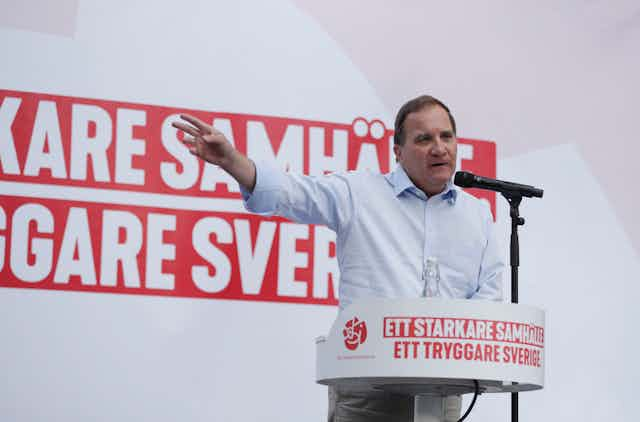Sweden is heading for a general election on September 9, with two pressing political issues driving the agenda. But a third, simmering problem could yet define the next parliament.
Around 50 wildfires raged across Sweden during the summer of 2018 – the warmest summer since 1756. So severe was the problem that the Swedish government had to request help from the EU. The gravity of the situation brought environmental questions to the fore, as the effects of climate change became more tangible than ever.
All this has provided new impetus to the struggling Green Party which had looked unlikely to secure the 4% of votes needed to secure seats in the national parliament but now looks likely to reach that threshold. A similar turnaround took place in the 1988 election, when a sudden outbreak of seal pest, a contagious disease that kills the young of the species, helped the Greens enter the Riksdag for the first time.

But the event most defining these elections is the refugee crisis.
In the fall of 2015, Sweden opened its doors to asylum seekers from Syria and elsewhere, taking in more than 100,000 people over a period of just a few months. Managing the influx of people proved difficult and the Social Democrat/Green coalition government had to introduce a much stricter version of its asylum policy as a result. This effectively closed down Sweden’s southern border with Denmark and temporarily suspended the Schengen agreement, which allows free movement through continental Europe. The switch from an open-door policy to a very restrictive approach to asylum, and the poor way in which new arrivals were managed cast a shadow of doubt over the competence of prime minister Stefan Löfven. His Social Democratic Party is now likely to see a significant drop in voter support.

The refugee crisis has had a major impact on Swedish politics. The Sweden Democrats, a staunchly anti-immigration party, has thrived on migration becoming a major concern for many citizens. Current polls show that the party is projected to win about 20% of the vote – its best ever result by a significant margin.
However, the crisis has had a far broader affect on political discourse. In February 2013, Tobias Billström, then immigration minister for the Conservative Party, was reprimanded by his party leader for proposing capping the number of non-EU citizens allowed to residency in Sweden. Today, the same Conservative Party, under the new leadership of Ulf Kristersson, has not shied away from proposing a very similar policy.
The refugee crisis has normalised the topic of immigration management, which has affected the agendas of every political party running in this election. All have been forced to take a position on the subject, which has, in turn, made it a deeply polarising topic.
The political field has been divided into those who are in favour of a more generous immigration approach (Social Democrats, the Left, the Greens and the Centre Party) and those who prefer a stricter policy (the Conservatives, the Christian Democrats, the Sweden Democrats and to some extent, the Liberals). Disagreements over immigration may even lead to a split within the centre-right Alliance that held power in two consecutive governments (2006-2010 and 2010-2014), with the Centre Party defecting from the group position to embrace a more restrictive immigration approach.
While the event of the refugee crisis was the spark that ignited the recent debate on immigration, the topic is connected to longer-term transformations in Swedish society. Political parties are also seeking answers to the difficulties caused by an ageing population, synonymous with a large number of retirees and high demand on the healthcare and elderly-care systems.
Integrating non-EU migrants into the labour market has been a slow process. And, if you add into the mix the generous welfare benefits traditionally provided by the Swedish state (long parental leave, free education at all levels, subsidised healthcare), the dilemma faced by Swedish politicians is evident. The biggest issue of this (and coming) elections will really be the future of the welfare state. Parties must either find creative solutions to finance public services – or propose cutting some of them.

